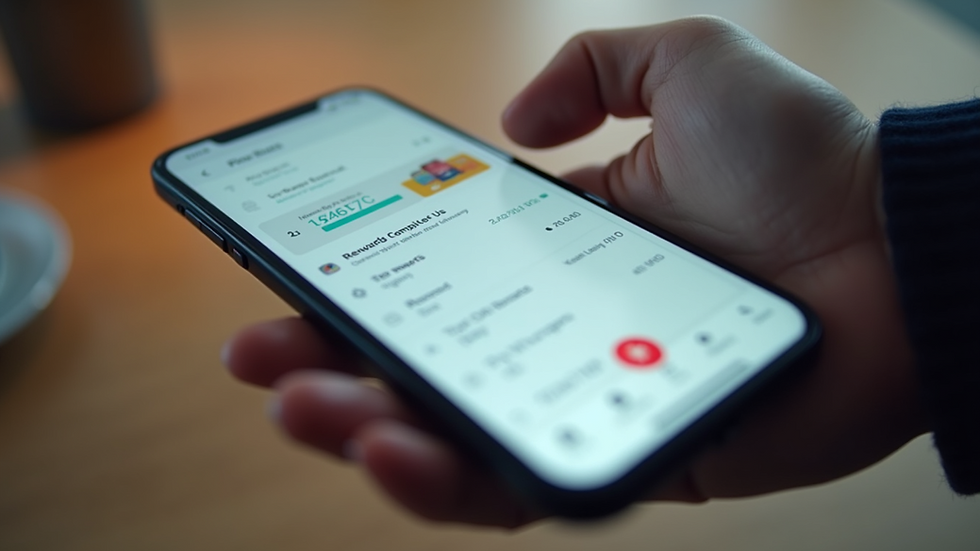Top Benefits of Loyalty Points Programs Explained
- Charlie
- Jul 20
- 4 min read
In today's competitive market, businesses are constantly seeking ways to attract and retain customers. One effective strategy that has gained significant popularity is the use of loyalty points programs. These programs reward customers for their continued patronage, fostering long-term relationships and encouraging repeat business. This blog post will explore the top benefits of loyalty programs and how they can benefit both customers and businesses alike.
Benefits of Loyalty Programs
Loyalty programs are not just about accumulating points; they encompass a wide range of benefits for customers. When businesses implement a well-structured loyalty program, they create a win-win situation. Here are some key advantages:
Encourages Repeat Purchases
One of the main objectives of a loyalty program is to encourage repeat purchases. Customers who have a stake in the program, such as accumulating points or rewards, are more likely to return. For example, coffee shops often offer loyalty cards that reward customers with a free drink after a certain number of purchases. This system not only increases sales but also enhances customer satisfaction.

Loyalty card ready for a free drink Improves Customer Retention
Acquiring new customers can be significantly more expensive than retaining existing ones. Loyalty programs help in retaining customers by showing them appreciation for their loyalty. Research shows that businesses with effective loyalty programs can boost customer retention by as much as 10 to 20 percent. By providing customers with exclusive offers and discounts, businesses can maintain a loyal customer base.
Increases Customer Engagement
Engaging customers is crucial for business success. Loyalty programs allow businesses to interact with their customers on a more personal level. Through personalized emails, exclusive deals, and birthday bonuses, businesses can keep customers interested and engaged. For instance, retailers often send discounts to loyal customers, making them feel valued and increasing the likelihood of returning.

Customer receiving a special promotion
Are Loyalty Programs for Real?
You may wonder whether loyalty programs are truly beneficial or if they are just a marketing gimmick. The answer is simple: when executed correctly, loyalty programs can have a significant positive impact on businesses. Studies have shown that engaged customers are worth up to 10 times their initial purchase. Moreover, brands like Starbucks and Sephora have built their success around loyalty programs, proving their efficacy.
Better Customer Insights
Loyalty programs offer businesses valuable insights into customer behavior. By tracking how customers interact with the program, businesses can obtain important data that helps them tailor marketing strategies and product offerings. For example, analytics can reveal which products are popular among loyal customers, which can help businesses optimize their inventory and marketing efforts. This understanding can lead to more targeted and effective campaigns.
Builds a Brand Community
Another important benefit of loyalty programs is that they help build a sense of community among customers. Many loyalty programs encourage customers to interact with each other or share their experiences on social media. This sense of belonging can create a strong brand community, which can further enhance customer loyalty. For example, brands like Nike and Apple have successfully cultivated their communities by encouraging customer engagement online.
Increases Average Order Value
Loyalty programs can also lead to an increase in average order value (AOV). When customers are aware that their purchases will contribute to earning rewards, they may be inclined to spend more. For example, if a customer needs to reach a certain point threshold for a reward, they might buy additional items to achieve that goal. This behavior not only benefits the customer but also boosts sales for the business.
Examples of Successful Loyalty Programs
Many businesses have successfully implemented loyalty programs, leading to measurable results. Below are some examples that illustrate how these programs can significantly benefit both customers and businesses.
Starbucks Rewards
Starbucks offers a loyalty program that allows customers to earn stars with every purchase. Once they accumulate enough stars, they can redeem them for free drinks and food. This program has not only increased customer visits but has also made the Starbucks app a go-to platform for its users.
Sephora Beauty Insider
Sephora's Beauty Insider program lets customers earn points for every dollar spent, redeemable for exclusive products and experiences. Additionally, this program offers tiers that provide customers with personalized benefits as they spend more. This encourages customers to engage more deeply with the brand for greater rewards.

Beauty products promotion for loyal customers Amazon Prime
While not a traditional loyalty points program, Amazon Prime exemplifies customer loyalty benefits. For a monthly fee, customers gain access to free shipping, exclusive deals, and various forms of entertainment, which enhances their overall shopping experience and encourages them to make more purchases from Amazon.
The Importance of Personalization
In the age of digital marketing, personalization is essential. Loyalty points programs that utilize sophisticated algorithms and data analytics can better understand customer preferences and behaviors. By doing so, they can create a more tailored experience.
Email marketing, for example, can be personalized based on past purchases or interests, making offers more appealing to the individual customer. Businesses that leverage personalization in their loyalty programs often find that customers are significantly more likely to engage.
Conclusion: The Future of Loyalty Programs
As the market continues to evolve, businesses must adapt their loyalty programs to stay relevant. One trend gaining traction is the integration of gamification elements to enhance engagement. By incorporating challenges, badges, or level-ups, businesses can make their loyalty programs more exciting and rewarding.
In conclusion, the benefits of loyalty programs are clear. They encourage repeat purchases, improve customer retention, and foster brand community. By understanding and leveraging the advantages of a loyalty points program, businesses can cultivate a loyal customer base that ultimately drives success and growth.




Comments